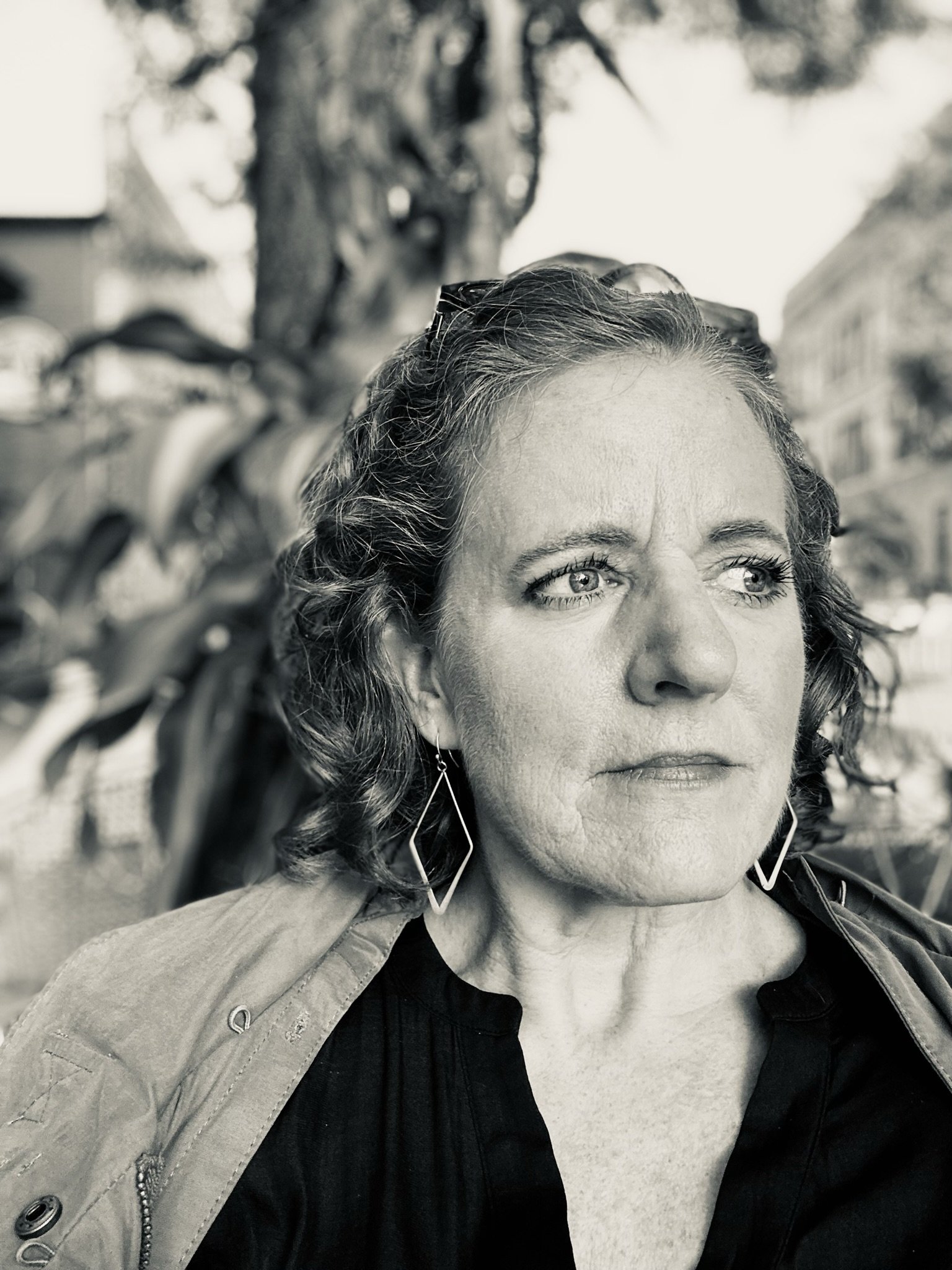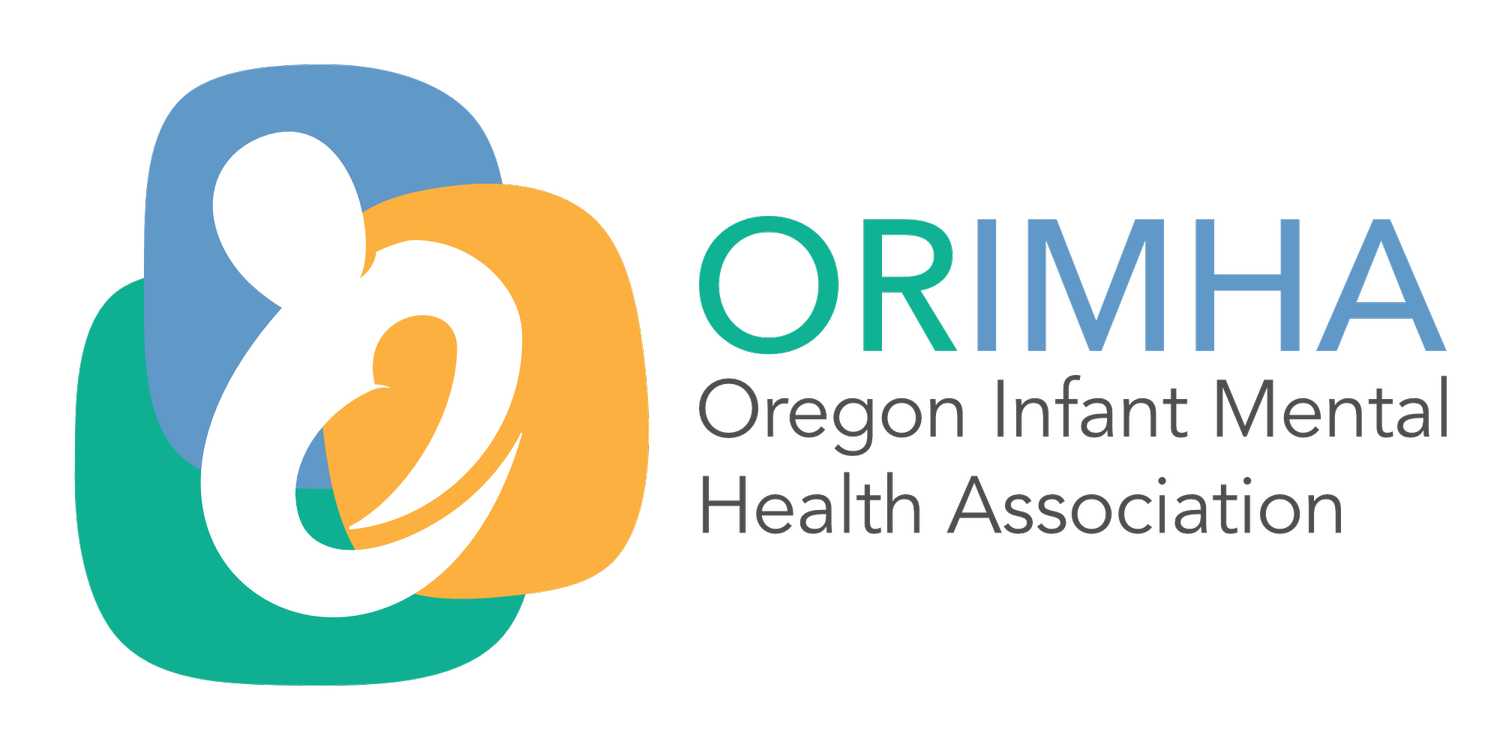
Regional Service Providers.
The Oregon Infant Mental Health Association (ORIMHA) serves as the central entity for the Department of Early Learning’s Early Childhood Suspension and Expulsion Prevention Project. In this capacity, ORIMHA provides statewide leadership in equity-centered Infant and Early Childhood Mental Health (IECMH) Consultation, including thought leadership and innovation, knowledge & promotion of best practices, and support & training for the IECMH Consultation workforce. ORIMHA supports the development of the Early Childhood Suspension and Expulsion Prevention Program, including providing centralized coordination for Regional Service Providers and supporting a Coordinated System of Support. These pages are intended as a resource tailored to the needs of the Regional Service Providers, and are made public to serve those interested in this work.
To learn more about the purpose of this project, you can read the reports below:
ORIMHA has forged a team of professionals with a range of expertise in systems building, implementation science, IECMH workforce development, and responding to the needs of communities - as well as a depth of knowledge in IECMH Consultation.
-
Erin Kinavey Wennerstrom M.Ed., NCC, LPC, IMH-E® - Executive Director for ORIMHA
erin@or-imha.org
I am excited to have the opportunity to support the work of ORIMHA including this important role related to the prevention of the use of suspension and expulsion across our early childhood settings. My role is to coordinate the work of the amazing team you will get to know over the next few years. I enjoy working with communities to solve complex system challenges. I have a background in EI/ECSE as a provider, local administrator and state director. I am an experienced infant and early childhood mental health consultation (IECMHC) provider and a Licensed Professional Counselor (LPC), in Oregon.
-

Nichole Paradis, LMSW, IMH-E®
nicholeparadis@icloud.com
Hello! I am proud to be on ORIMHA’s Central Entity team. I will be facilitating communities of practice (CoPs) for RSP leaders. Once the project is underway, CoPs will provide a monthly space for RSP leaders to connect with each other, ask questions, and receive reflective support on best practices for IECMH consultation and/or other topics identified by YOU. Also, we are developing resources related to 1) hiring and training qualified IECMH consultants, and 2) foster a shared understanding of mental health consultation in early care and education settings. I look forward to connecting and learning more about how ORIMHA can be a resource for you!
-

Sondra M. Stegenga, Ph.D., M.S. OTR/L
sondra.stegenga@utah.edu
I am grateful to be part of ORIMHA and the Central Entity work for ECSEPP in Oregon! I am a longtime provider, home visitor, and administrator in early intervention and early childhood systems and have provided services in Oregon and Michigan before moving into my current role in research and supporting the implementation of evidence-based practices. I know how important this work is but also how challenging large systems-level changes can be. As part of the ORIMHA team, I am focused on providing training and supports related to the implementation and scale-up of IECMH Consultation - focused on how we actually make new practices work in our own communities and systems. We have learned from recent research that there are particular systems level supports and training linked to quicker and more sustainable long-term use of evidence-based practices.
-
Susan Fischer-Maki and Cara Copeland
susan@commonthreadllc.com
cara@commonthreadllc.com
Susan Fischer-Maki and Cara Copeland will be supporting regional network development--a key complement to the work we'll be doing together to launch Consultation. As helpful, Susan and Cara will join in our meetings and you will likely see communication directly from them for Appreciative Interviews separate from our work together if you are a Hub or CCR&R Director.
-

Veronica Rosa-Sandoval, LMSW, IMH-E®
vrosa@allianceaimh.org
Veronica is the very first Bilingual/Bicultural Workforce Development Specialist working for the Alliance for the Advancement of Infant Mental Health, with over 15 years of experience in the Infant and Early Childhood Mental Health field. As a member of the ORIMHA team, Veronica supports English and Spanish speaking Endorsement applicants in Oregon through every step of the process. She will provide relationship-based guidance to RSP leaders, staff, and IECMH Consultants as they navigate their Endorsement journeys. Veronica earned her master’s degree in social work from Wayne State University (WSU). Throughout the course of her career, she has worked in many scopes of practice and has always had an authentic passion for the fostering of emotional well-being in young children and their families. She recognizes that early healthy relationships are pivotal to reduce risk factors, and to prevent emotional harm in children. She believes that to support little ones, we must primarily provide dyadic relationship-based services to caregivers. Not only does she have comprehensive knowledge in infant and early childhood development, but also in intellectual & developmental delays. One her biggest accomplishment has been advocating for the BIPOC community, by using her Spanish bilingual skills to bring awareness around topics that affect those who are impacted by language and cultural barriers. She is a firm believer that it is our job as professionals and human beings to bring more awareness around Diversity, Equity, Inclusion & Belonging. Veronica currently provides Reflective Supervision Consultation to professionals who work with or on behalf of infants and children in Indiana, Pennsylvania and Michigan. She believes in the power of relationships and aspires to keep building connections and professional relationships with the purpose of collaboration and growth.
FAQs
-
Every year in the US, thousands of infants and young children may be expelled from or pushed out of their child care (home or program setting), preschool, or Pre-K program. A disproportionate number of these children are Black. Early childhood expulsions are happening at a rate between 3 and 13 times what they are in K–12 classrooms. Many more children, both with and without diagnosed disabilities, across all early childhood settings and sectors, are suspended, with data reflecting severe racial disparities. Indeed, while Black children make up 18 percent of public school preschool enrollment, they represent 48 percent of preschoolers suspended more than once, leaving them with few supports and fewer options to ensure they are able to participate in high-quality early learning during this critical period in their development.”
-Summarized from a joint statement signed by 34 prominent national organizations.
In Oregon, a 2022 survey of families found that 9.1% of all families with a child under the age of five had a child asked to leave care in the last year, a significant increase from the 6.3% the first year the survey was first conducted in 2019. [Pears, K.C., Bruce, J., and Scheidt, D. (2023). Oregon Preschool Development Grant Birth to Age 5 Strengths and Needs Assessment: 2022 Statewide Household Survey Results. Report submitted to the Oregon Early Learning Division and Early Learning Council, May 2023.]
-
Blame themselves or their child. This can lead to harsh and less effective parenting approaches at home.
According to the US Department of Health and Human Services’s Administration for Children, Youth, & Families:
Young children expelled from preschool are more likely to:
Lose chances to learn, socialize with other children, and interact with positive adult role models.
Miss out on chances to develop and practice the very skills they may most need, including social and emotional skills.
Develop ongoing behavior problems leading to later school difficulty.
Experience harmful effects on development, education, and health.
View themselves negatively or as not capable of learning.
Develop negative views about learning, school, teachers, and the world around them.
Families who have a child who has been expelled may:
Lose access to a teacher or program that may have provided support to their child and family.
Experience increased stress, including financial challenges, as they look for alternative care. Some parents may lose their jobs when a child is expelled because there are limited alternatives for other care.
“By being expelled from the system, children are not only losing access to their early learning experiences, they may also be less likely to be referred to—and receive—the services and supports they need to thrive. These disparities in access to resources start early and may compound over time. Research indicates that early expulsions and suspensions predict later expulsions and suspensions, academic failure, school dropout, and an increased likelihood of later incarceration—a ‘preschool to prison pipeline,’ or perhaps ‘cradle to prison pipeline,’ with devastating and costly consequences.
-From a paper for the National Academy of Medicine
-
The Oregon legislature adopted House Bill 2166 and Senate Bill 236 to specifically address this issue. From a Department of Early Learning and Care (DELC) report: “To successfully implement the prohibition on suspension and expulsion mandated in SB 236, Oregon needs to ensure that early learning and care providers are supported to address behaviors that they experience as challenging and are equipped to address implicit biases that contribute to the disproportionate rates at which young children are suspended and expelled. Therefore, a significant focus of DELC’s suspension and expulsion reduction strategy is on professional development, technical assistance, coaching, and other supports for the workforce. The Infant and Early Childhood Mental Health Consultation (IECMHC) program being developed through HB 2166 is one part of this larger workforce strategy.”
Oregon’s plan includes:
Universal Promotion Strategies: Foundational Education, Training, and the Pyramid Model
Secondary Prevention Strategies: Technical Assistance and Coaching
Tertiary Intervention: Infant and Early Childhood Mental Health Consultation
-
According to the Center of Excellence for Infant and Early Childhood Mental Health (IECMH) Consultation at Georgetown University, “IECMH Consultation is a prevention-based approach that pairs a mental health consultant with adults who work with infants and young children in the different settings where they learn and grow, such as child care, preschool, home visiting, early intervention and their home. Mental health consultation is not about ‘fixing kids.’ Nor is it therapy. Mental health consultation equips caregivers to facilitate children’s healthy social and emotional development.”
-
The rates of expulsion and/or suspension from early childhood care & education programs have been shown to be lower after consultation. However, there is not yet enough data to show (directly) that IECMH consultation reduces racial disparities in expulsion and suspension rates.
The research summary also points out that IECMH consultation improves social-emotional well-being in young children, for example behaviors that decrease after consultation include hyperactivity, defiance, and aggression. Data also suggests that early childhood care and education providers improve their social-emotional support for young children, for example interaction styles with children become more positive and sensitive to mental health needs, characterized by reduced permissiveness and detachment and increased sensitivity and closeness.
-
DELC has selected ORIMHA as the Central Entity for this project, meaning ORIMHA will be responsible for ensuring that the IECMH Consultation program has statewide standards of practice, guidelines for implementation, data collection protocols, continuous quality improvement processes, and shared outcomes.
ORIMHA will collaborate with DELC in developing and implementing the IECMH Consultation Program by:
Developing standards and guidelines for IECMH consultation programs that are culturally responsive, implemented with a focus on anti bias and inclusive practices, and effective in preventing suspension and expulsion
Defining the essential skills and competencies for IECMH Consultants
Supporting the knowledge and skill development of IECMH Consultants and program leaders
Developing a variety of strategies and workforce pathways to increase the diversity of Oregon’s IECMH consultation workforce.
Providing technical assistance and implementation support to Regional Service Providers on all aspects of implementing and administering an IECMHC program
Engaging in Continuous Quality Improvement and Evaluation Activities, adjusting program practices and updating technical assistance to Regional Service Providers as needed.
-
One distinction between IECMH Consultation and the Pyramid Model is that the IECMH consultant does not bring a prescribed training package or manualized set of practices to the program. IECMH consultants use their clinical skills and mental health training to assess an individual child, caregiver, and/or program’s needs and issues. The IECMH consultant works with ECE program leadership and staff to determine the best approach for addressing children’s social and emotional needs and challenges. The consultant uses a combination of techniques and strategies informed by evidence-based behavioral health principles.
-
There will be an Regional Service Provider (RSP) from each of the 15 existing geographic Childcare Resource and Referral (CCR&R) regions across the state. RSPs will hire staff and provide IECMH consultation services to early learning programs within each of Oregon’s 15 regions. RSPs will engage in activities falling into two major categories: 1) Function as a member of a Coordinated System of Support and 2) Implement Equity Centered IECMH Consultation to Prevent Suspension and Expulsion.
-
Infant and early childhood mental health (IECMH) consultants are highly-trained…professionals with specialized knowledge in childhood development, the effects of stress and trauma on families, the importance of attachment for young children, and the impacts of adult mental health on developing children. IECMH consultants:
Support young children’s social and emotional health indirectly by strengthening the adult caregivers’ capacities
Draw upon relational skills, mental health training and knowledge of evidence-based strategies; they do not use a prescribed training/intervention package
Collaborate with the caregivers they support
-
The Endorsement for Culturally Sensitive Relationship-Focused Practice Promoting Infant and Early Childhood Mental Health is:
A credential
Recognizes that an individual has specialized in infant & early childhood mental health within their scope of practice
The application documents:
Requirements such as years of work experience, hours of reflective supervision, hours of training, etc.
Competencies such as infant & young child development & behavior, cultural humility, observation & listening, screening & assessment, etc.
Reference ratings attest to all competencies including those tied to reflection and working with others
-
Reflective supervision/consultation (RS/C) is an ongoing professional development practice for the infant and early childhood (IEC) workforce. Through regularly scheduled reflective sessions, the IEC professional and their supervisor/mentor/consultant establish a collaborative and reflective alliance. RS/C supports the professional in addressing the challenges of their work and leads to better service to families. The relationship, in which the professional feels seen, heard, and understood, provides a model for strengthening relationships and promoting the growth and development of babies, young children, their parents, and caregivers.
Concretely, RS/C provides a regular opportunity for a professional to talk about their work and the impact their work has on themselves and others. RS/C fosters critical self-awareness and the ability to consider multiple perspectives, all of which enhance an organization’s implementation of a relationship-based culture.
For more on RS/C, go to https://www.orimha.org/about-reflective-supervision

